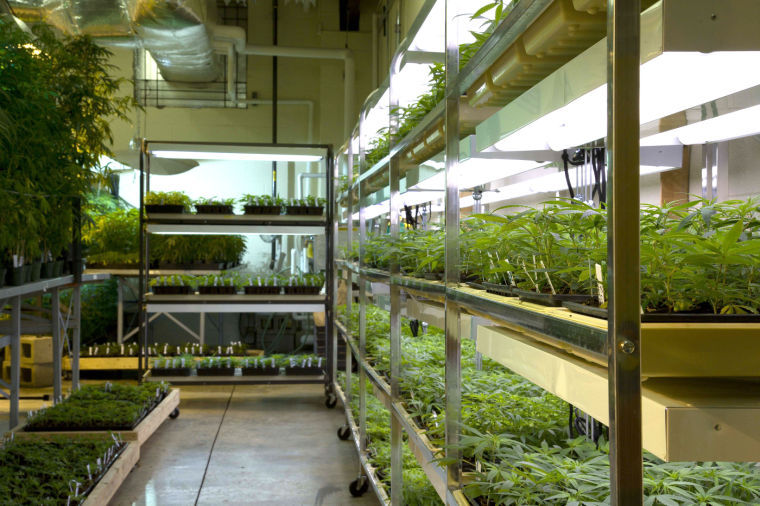Higher education
Marijuana plants used for research grow inside a laboratory at the University of Mississippi in Oxford, March, 2007.
April 18, 2014
Initiative 502 legalized cannabis possession, manufacture and sale in Washington state. But thanks to federal laws and other roadblocks, I don’t think WSU will be seeing any cannabis-based curriculum any time soon.
In Washington, it is legal to grow marijuana with a license from the state, according to the Washington State Liquor Control Board. Unfortunately, the state university cannot research growing options as the national government still considers marijuana an illegal substance.
I feel that a university marijuana program to research and develop the best methods for growing the best marijuana would be amazing for business and innovation.
Legal marijuana can be a very lucrative business venture. In Colorado, an early adopter of recent sales licenses opened a medical store and netted $1 million in profits for 2013, according to Slate. And that was before he became eligible to sell recreational pot.
Now, imagine a fully legal Walter White finding, through university research, the perfect strain of marijuana to go along with the most optimal way to produce it.
It’d be like a benign version of Breaking Bad; where the executive doesn’t become murderous because the product is legal and users don’t kill each other over it because the high discourages aggression.
Washington State University President Elson S. Floyd addressed public interest regarding hemp and marijuana in one of his recent blog posts.
“Issues remain that must be resolved prior to embarking on any research that involves the production of industrial hemp or recreational and medicinal cannabis,” Floyd said. These issues are surprisingly abundant.
Although I think the idea of university cannabis research is an interesting one, there is simply too much red tape blocking WSU from pursuing such operation.
On the same post, Floyd cited a failed house bill to permit industrial hemp, production of cannabis for research being federally prohibited, and cannabis as a Schedule 1 controlled substance requiring DEA approved containment facilities with 24/7 surveillance.
I’m willing to go out on a limb to say WSU will not be in any rush to spend a large amount of money on the construction and maintenance of such a facility.
WSU doesn’t seem to be in a hurry to pursue anything related to marijuana research, actually. On the same post, Floyd explained that all research facilities where industrial hemp is grown must be registered by the state.
“To date, no policies or processes have been set to obtain these permissions,” Floyd said.
No action has been taken yet to even attempt to be able to work with marijuana on the university level. This is likely because the federal hold on marijuana operations is so much that the university sees no use in making the push.
Still, interest in marijuana studies persists. The university continues to receive frequent inquiries regarding industrial and/or recreational cannabis research and production, according to an April 11 faculty and staff update.
My interest lies in the possibility of a marijuana development program similar to WSU’s wine viticulture department, which teaches student how to produce the best wine; from growing the grapes to crafting the finished product.
WSU food science professor Carolyn Ross discussed the feasibility of a marijuana program that parallels WSU’s viticulture program.
She said WSU’s viticulture program educates students in the many processes involved in producing great wine. With a product so specialized, it might limit students professionally.
WSU economic science professor Vicki McCracken, who was involved in the original decision to give wine development its own departmental program, said it might be similar enough to the production of other crops that it doesn’t need its own program.
As if the laws forbidding campus marijuana research weren’t enough.
Despite these drawbacks, President Floyd said WSU will continue to monitor emerging opportunities, according to his blog post.
We can be confident that university officials will make good on such an assurance. Don’t expect anything to materialize from it, though.
After all, as long as the federal government refuses to loosen its grip on cannabis, we can look forward to more university statements.
They’ll tell us about those wonderful opportunities they monitored and then let us know to date, no policies or processes have been set to take advantage of them.
– Fletcher Bailey is a junior communication major from Seattle. He can be contacted at 335-2290 or by [email protected]. The opinions expressed in this column are not necessarily those of the staff of The Daily Evergreen or those of Student Publications.



















